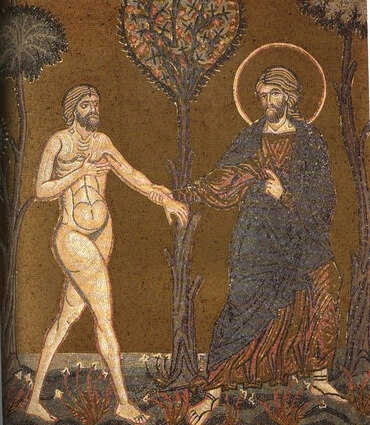1
Ja Jumala sanoi Jakobille: nouse ja mene ylös BetEliin, ja asu siellä: ja tee siihen alttari Jumalalle, joka sinulle ilmestyi, koska sinä pakenit veljes Esaun edestä.
2
Niin sanoi Jakob perheellensä, ja kaikille, jotka hänen kanssansa olivat: eroittakaat teistänne vieraat Jumalat, jotka teidän seassanne ovat, ja puhdistakaat teitänne, ja muuttakaat teidän vaatteenne.
3
Ja nouskaamme ja menkäämme ylös BetEliin; että minä tekisin siihen alttarin Jumalalle, joka minua kuuli minun hätäaikanani, ja on ollut minun kanssani tiellä, jota minä matkustin.
4
Niin he antoivat Jakobille kaikki vieraat Jumalat, jotka heidän käsissänsä olivat, ja korvarenkaansa, jotka heidän korvissansa olivat. Ja Jakob kaivoi ne sen tammen alle, joka oli Sikemin tykönä.
5
Ja he matkustivat. Ja Jumalan pelko tuli niille kaupungeille, jotka olivat heidän ympärillänsä, ettei he ajaneet Jakobin poikia takaa.
6
Niin tuli Jakob Lutsiin Kanaanin maalle, se on BetEl, kaiken sen väen kanssa kuin hänen kanssansa oli.
7
Ja rakensi siihen alttarin, ja kutsui sen paikan ElBetEl; sillä Jumala ilmestyi siinä hänelle, paetessansa veljensä edestä.
8
Niin kuoli Debora Rebekan imettäjä, ja haudattiin alemmaiselle puolelle BetEliä, tamme alle: ja se kutsuttiin itkutammeksi.
9
Ja Jumala ilmestyi taas Jakobille, sitte kuin hän oli tullut Mesopotamiasta ja siunasi häntä.
10
Ja Jumala sanoi hänelle: sinun nimes on Jakob: mutta ei silleen pidä sinun nimes kutsuttaman Jakob, vaan IsraEl pitää sinun nimes oleman. Ja niin kutsuttiin hänen nimensä IsraEl.
11
Ja Jumala sanoi hänelle: Minä olen kaikkivaltias Jumala, ole hedelmällinen ja enäne, kansa ja kansain joukko pitää sinusta tuleman: ja kuninkaat pitää tuleman sinun kupeistas.
12
Ja sen maan, jonka minä olen antanut Abrahamille ja Isaakille, annan minä sinulle: ja sinun siemenelles sinun jälkees, annan minä sen maan.
13
Ja niin meni Jumala ylös hänen tyköänsä, siinä paikassa, kuin hän hänen kanssansa puhunut oli.
14
Mutta Jakob asetti muistopatsaan siihen paikkaan, jossa hän hänen kanssansa puhunut oli, (nimittäin) kivisen patsaan: ja uhrasi juomauhria, ja kaasi öljyä sen päälle.
15
Ja Jakob kutsui sen paikan, jossa Jumala hänen kanssansa puhunut oli, BetEl.
16
Ja he matkustivat BetElistä, ja kuin vielä vähä matkaa oli Ephratiin, niin synnytti Rakel, ja synnyttäminen oli hänelle sangen raskas.
17
Ja koska synnyttäminen oli hänelle raskaimmallansa; sanoi lastenämmä hänelle: älä pelkää, sillä tämä poika on sinulla myös oleva.
18
Mutta hänen henkensä lähteissä, koska hänen piti kuoleman, kutsui hän hänen nimensä BenOni: mutta hänen isänsä kutsui hänen nimensä BenJamin.
19
Niin kuoli Rakel: ja hän haudattiin Ephratiin tien viereen, se on BetLehem.
20
Ja Jakob pani patsaan hänen hautansa päälle: tämä on Rakelin haudan patsas hamaan tähän päivään asti.
21
Ja IsraEl matkusti edespäin, ja teki majansa tuolle puolelle Ederin tornia
22
Ja se tapahtui, koska IsraEl asui siinä maakunnassa, meni Ruben ja makasi Bilhan isänsä jalkavaimon kanssa. Ja IsraEl sai sen kuulla. Ja Jakobilla oli kaksitoistakymmentä poikaa.
23
Lean pojat olivat nämät: Jakobin esikoinen Ruben; niin Simeon, ja Levi, ja Juuda, ja Isaskar ja Zebulon.
24
Rakelin pojat olivat: Joseph ja BenJamin.
25
Bilhan Rakelin piian pojat olivat: Dan ja Naphtali.
26
Silpan Lean piian pojat olivat: Gad ja Asser. Nämät ovat Jakobin pojat, jotka hänelle syntyneet olivat Mesopotamiassa.
27
Ja Jakob tuli isänsä Isaakin tykö Mamreen, Arban kaupunkiin, joka on Hebron, jossa Abraham ja Isaak olivat muukalaiset olleet.
28
Ja Isaak oli sadan ja kahdeksankymmenen ajastaikainen:
29
Ja tuli riutuneeksi, ja kuoli, ja koottiin kansansa tykö, vanhana ja suuttununna elämästä. Ja hänen poikansa Esau ja Jakob hautasivat hänen.







